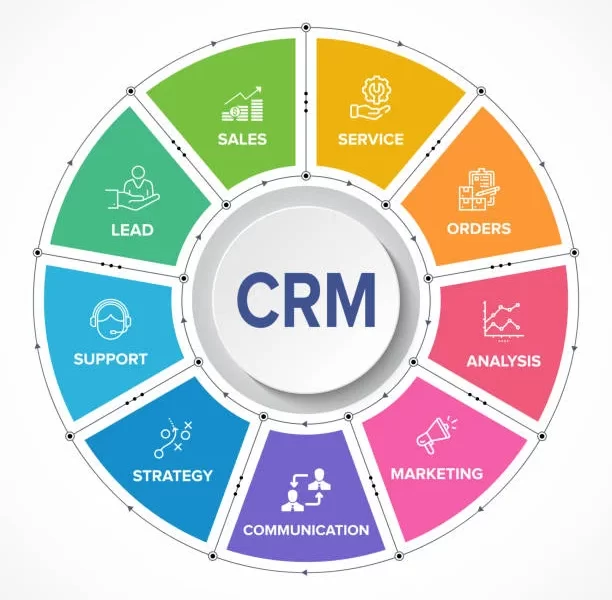The Best CRM Software for Businesses in California: Maximize Efficiency and Profits
In today’s competitive business landscape, Customer Relationship Management (CRM) software has become essential for organizations aiming to enhance efficiency and maximize profits. For businesses in California, a state known for its vibrant economy and diverse industries, selecting the right CRM solution can significantly impact growth and customer satisfaction. This article explores the best CRM software options available in California, highlighting their features, benefits, and how they can help businesses thrive.
Understanding CRM Software
What is CRM Software?CRM software is a technology that helps businesses manage their relationships and interactions with current and potential customers. It centralizes customer information, streamlines processes, and improves profitability by enhancing customer service and satisfaction.Key Features of CRM Software
- Contact Management: Organizes customer information and interaction history.
- Sales Automation: Automates sales processes to increase efficiency.
- Marketing Automation: Manages marketing campaigns and tracks their effectiveness.
- Customer Support: Provides tools for managing customer inquiries and support tickets.
- Analytics and Reporting: Offers insights into sales performance and customer behavior.
Top CRM Software Options in California
California is home to several leading CRM software providers. Here are some of the best options available:
1. Salesforce
OverviewSalesforce is arguably the most recognized CRM platform globally, originating from San Francisco. It offers a comprehensive suite of tools for sales, service, marketing, and more.Key Features
- Customizable dashboards
- Advanced analytics
- AI-driven insights (Einstein AI)
- Extensive third-party app marketplace (AppExchange)
BenefitsSalesforce’s versatility allows businesses of all sizes to tailor the platform to their specific needs, enhancing operational efficiency and customer engagement
.
2. HubSpot CRM
OverviewHubSpot CRM is popular among small to medium-sized businesses due to its user-friendly interface and robust free version.Key Features
- Integrated email marketing
- Sales automation tools
- Comprehensive contact management
- Reporting dashboards
BenefitsHubSpot provides a holistic approach to customer relationship management, enabling businesses to nurture leads effectively without the complexity of traditional CRMs
.
3. Microsoft Dynamics 365
OverviewMicrosoft Dynamics 365 integrates seamlessly with other Microsoft products, making it an excellent choice for businesses already using Microsoft services.Key Features
- Sales and service automation
- AI capabilities
- Extensive analytics
- Integration with LinkedIn Sales Navigator
BenefitsThis platform offers deep insights into customer behavior, helping businesses make informed decisions that drive growth
.
4. Zoho CRM
OverviewZoho CRM is known for its affordability and extensive feature set, making it ideal for startups and small businesses.Key Features
- Workflow automation
- Multichannel communication
- AI assistant (Zia)
- Comprehensive reporting
BenefitsZoho’s customizable nature allows businesses to tailor the CRM to their specific needs while streamlining operations across teams
.
5. Nimble
OverviewNimble focuses on social media integration, making it perfect for businesses that rely on social selling strategies.Key Features
- Social media integration
- Contact management
- Pipeline management
- Group messaging capabilities
BenefitsNimble helps businesses manage relationships effectively by aggregating contact information from various sources
.
6. Freshsales
OverviewFreshsales is designed for small to medium-sized enterprises looking for an intuitive CRM solution.Key Features
- Built-in phone and email capabilities
- Lead scoring
- Visual sales pipeline
- AI-based insights
BenefitsFreshsales simplifies the sales process by providing tools that enhance productivity while maintaining a focus on customer relationships
.
7. EngageBay
OverviewEngageBay combines sales automation with marketing capabilities in one user-friendly platform.Key Features
- Email sequence automation
- Appointment scheduling
- Web analytics
- Ticketing system
BenefitsThis all-in-one solution is cost-effective for small to medium-sized enterprises looking to manage leads efficiently
.
Choosing the Right CRM for Your Business
When selecting a CRM system, consider the following factors:
- Business Size and Type: Different CRMs cater to varying business sizes and industries.
- Budget Constraints: Evaluate your budget against the features offered by each CRM.
- Ease of Use: A user-friendly interface can significantly reduce training time.
- Integration Capabilities: Ensure the CRM can integrate with your existing systems.
- Scalability: Choose a solution that can grow with your business.
Implementing Your Chosen CRM
Once you have selected a suitable CRM system, follow these steps for successful implementation:
- Define Clear Objectives: Establish what you want to achieve with the CRM.
- Train Your Team: Provide comprehensive training to ensure all users are comfortable with the new system.
- Migrate Data Carefully: Ensure that existing customer data is accurately transferred to the new system.
- Monitor Performance Regularly: Use analytics tools within the CRM to track performance against your objectives.
- Gather Feedback for Improvement: Regularly solicit user feedback to identify areas for improvement.
Conclusion
Investing in a robust CRM system can significantly enhance your business’s efficiency and profitability in California’s competitive market. By understanding the unique features of each option available—such as Salesforce’s extensive capabilities or HubSpot’s user-friendly approach—you can make an informed decision that aligns with your business goals.For further reading on maximizing your business potential through technology, consider exploring additional resources on digital transformation strategies or marketing automation tools.



